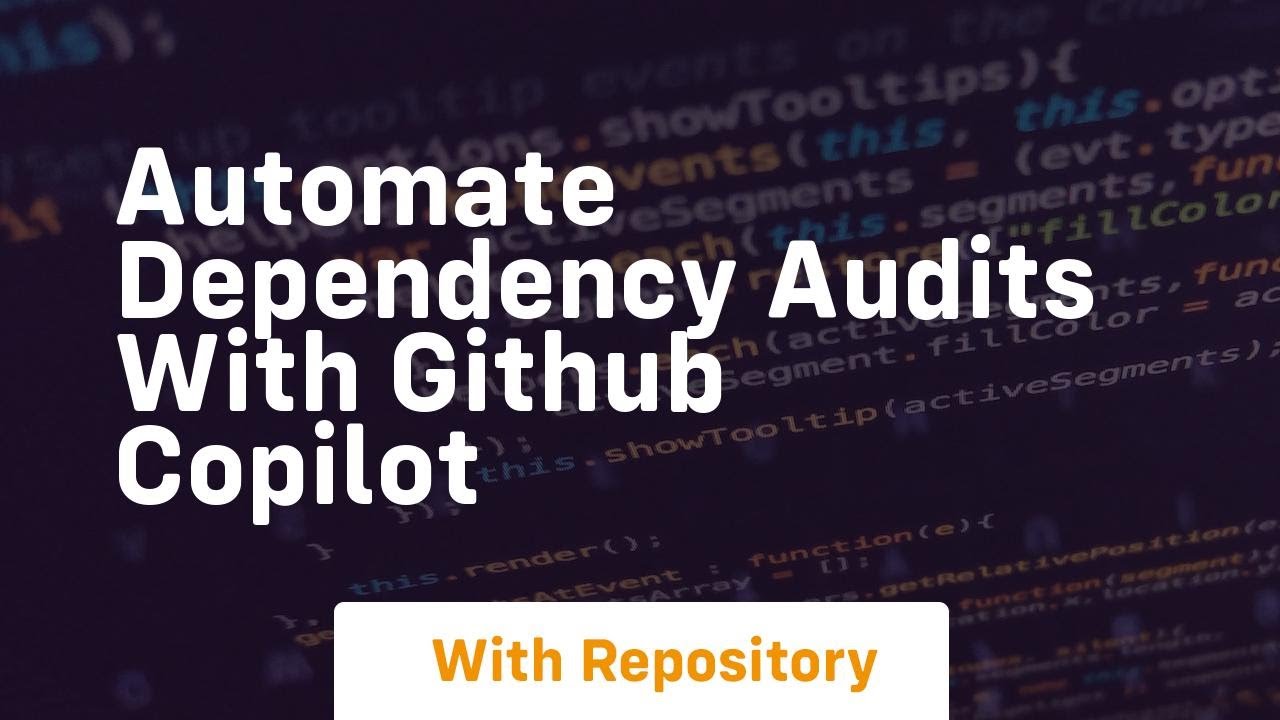
May 13, 2025
How to Run Dependency Audits with GitHub Copilot
How to Run Dependency Audits with GitHub Copilot
Have you pondered how many security risks your project's dependencies hide? A terrifying thought, right? An outdated package or neglected library might put your whole application at danger. I have push updates assuming everything was good, only to find out that a dependency had a security issue.
That's why, today I'm discussing about Dependency audits. They detect these issues before they become big problems. Manually auditing and correcting dependencies is exhausting. To simplify and speed up my process, I began utilizing GitHub Copilot. I will show you how to utilize Copilot to automate and simplify dependency audits for JavaScript, Python, Rust, or GitHub Actions to perform regular security checks in this blogpost.
Understanding Dependency Audits
Let's define dependency audits before automating. Every project uses third-party libraries, which allow us develop great software but sometimes pose hazards. Out dated packages might create security vulnerabilities or compatibility problems that ruin your program.
Once I worked on a Node.js app with a significant Express.js security issue. I did not know till npm audit showed me a huge number of bugs. Due to this, frequent dependency audits are essential to avoid these issues.
Different languages have built-in vulnerability checkers:

Using them manually is nice, but why not automate? GitHub Copilot simplifies it.
Setting Up GitHub Copilot for Dependency Audits
Installing GitHub Copilot is simple. A GitHub account and VS Code (Copilot also works with JetBrains and Neovim) are enough.
Once deployed, Copilot functions as an AI-powered coding assistant, recommending patches, producing scripts, and performing dependency checks. Its real-time audit script generation lets me automate checks without entering instructions.
I suggest generating a small project script to use Copilot for audits. Suppose you have a Node.js project. Create a script to run npm audit instead of manually:
const { exec } = require('child_process');
exec('npm audit --json', (error, stdout, stderr) => {
if (error) {
console.error(`Error running audit: ${error.message}`);
return;
}
console.log(`Audit Results:\n${stdout}`);
});Copilot generates scripts in seconds, not minutes.
Running Dependency Audits in Different Languages
Let's split it down by language to show how to use audits in your projects.
1. JavaScript/Node.js (npm audit)
Dependency audits are easy with Node.js. To check for vulnerabilities, run:
npm audit
To fix issues automatically, use:
npm audit fixWhat if you want to incorporate this into your workflow? That is Copilot's specialty. Ask it to create a script that checks every npm install to avoid installing insecure packages.
2. Python (pip-audit)
Python users require pip-audit. First, install:
pip install pip-audit
Then, run an audit:
pip-audit
With GitHub Copilot, you may continue. I requested Copilot to provide a Python script to automatically execute audits and log the results. It quickly came up with this:
import os
os.system("pip-audit > audit_report.txt")
print("Audit complete! Check audit_report.txt for details.")I receive an immediate dependency report every time I execute this script.
3. Rust (cargo audit)
Rust developers, I remember you! You require cargo audit if you use cargo. Install using:
cargo install cargo-audit
Then, run:
cargo auditCopilot simplifies Rust audits by recommending improvements and formatting reports automatically. I love that I can write "create a Rust script for running cargo audit" and Copilot does the rest.
Automating Dependency Audits with GitHub Actions
This is when it gets fun. Automation using GitHub Actions can replace manual audits. GitHub automatically checks for dependency problems when you push new code.
This basic GitHub Actions workflow runs npm audit on every push:
name: Dependency Audit
on: [push, pull_request]
jobs:
audit:
runs-on: ubuntu-latest
steps:
- name: Checkout repository
uses: actions/checkout@v3
- name: Install dependencies
run: npm install
- name: Run npm audit
run: npm audit –jsonCopilot can recommend and improve these workflows, simplifying automation. I adore customizing GitHub Actions and sending vulnerability notifications.
Best Practices for Dependency Auditing with Copilot
You surely are thrilled to start Copilot audits. Before you leave, consider these essential tips:
- Conduct frequent audits to prevent security concerns.
- Automate scripts and processes using GitHub Copilot.
- Optimize security by integrating Copilot and GitHub Dependabot.
- Resolve vulnerabilities swiftly; do not ignore warnings!
I underestimated how much time I was spending manually correcting bugs until I began automated dependency audits. Copilot altered that. I can now detect, fix, and automate things faster.
Conclusion
Security is not a choice; it is a must. Dependency audits protect projects, but manually conducting them is tedious. GitHub Copilot automates the process, making lives simpler and applications safer.
Waiting for what? Set up Copilot, audit scripts, and let AI do the work. I promise your future self will thank you!
718 views
